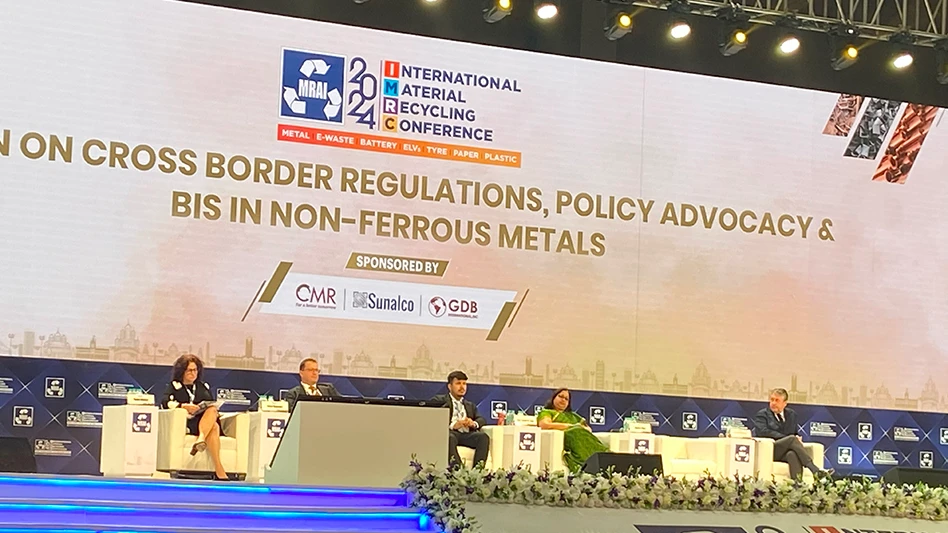
Recycling Today staff
What happens with India’s manufacturing and recycling sectors will be of interest for several years to come, with an officer of the Material Recycling Association of India (MRAI) predicting at the association’s International Material Recycling Conference in Kolkata, India, in late January that India has at least 15 years ahead before it reaches a balance between its scrap metal supplies and demand.
Attendees heard panelists and presenters refer to a recycling sector in the nation that is enjoying greater prominence, but also receiving unwanted attention in some cases.
Throughout last year, aluminum recyclers in India expressed negative opinions of a Bureau of Indian Standards (BIS) document intended to offer specifications for traded aluminum scrap grades in the nation. Suspicions focused on the Indian primary aluminum sector having suggested standards that were not applicable or attainable in the secondary aluminum process.
In Kolkata, delegates heard from Vishal Kumar Rana of the BIS, who is working on a copper recycling set of standards. Rana referred to copper as a “critical metal” and said standards are important in the making of any product so it is “of the desired quality.”
Rana, who said his process will involve certain stakeholders, received feedback from audience members urging him to make sure recyclers themselves were among those stakeholders. MRAI and its members have endorsed ferrous scrap standards authored cooperatively while remaining concerned about the future of the aluminum scrap standards.
Speaking bluntly, one MRAI delegate told Rana he thought it “preposterous” that primary producers should have the dominant voice in composing a scrap standard.
At several sessions during the event, speakers called for India’s government to have one primary contact and advocate within the set of ministries that governs the nation. Some asked for a “one-stop shop.”
Offering a presentation at the event was Farida M. Naik, a recently appointed joint secretary of India’s Ministry of Mines, one of the agencies involved in regulating the metals recycling sector.
After spending time at the 2024 MRAI event, which attracted 2,200 attendees and dozens of exhibitors, Naik said it was “a learning experience” that had changed her perspective regarding the level of sophistication of the metal recycling industry. “I’m highly impressed,” she said.
Although she said rolling back an import duty placed on nonferrous scrap coming into India is not her ministry’s responsibility, she told delegates she had been in touch with India’s Department of Economic Affairs to discuss the matter.
Another welcome form of attention could be coming from the lending industry, according to presenter Amitrajit Sett, who is based in Kolkata for global bank HSBC.
According to Sett, the bank has earmarked $1 trillion globally in sustainability funding, in part to help HSBC reach its own net zero emissions target by 2050. He said HSBC has adopted “sustainability as a theme [and] it is the future.”
The 2024 MRAI International Material Recycling Conference was Jan. 23-25 at the Biswa Bangla Mela Prangan convention center in Kolkata, India.
Latest from Recycling Today
- Orion ramping up Rocky Mountain Steel rail line
- Proposed bill would provide ‘regulatory clarity’ for chemical recycling
- Alberta Ag-Plastic pilot program continues, expands with renewed funding
- ReMA urges open intra-North American scrap trade
- Axium awarded by regional organization
- Update: China to introduce steel export quotas
- Thyssenkrupp idles capacity in Europe
- Phoenix Technologies closes Ohio rPET facility





